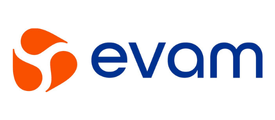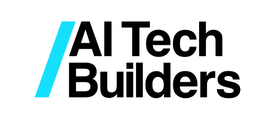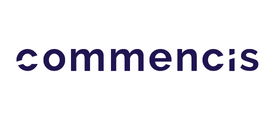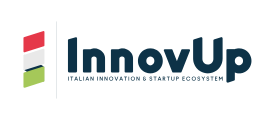Switch Dataset:
Startup News
We are collecting the most relevant tech news and provide you with a handy archive. Use the search to find mentions of your city, accelerator or favorite startup in the last 1,000 news items. If you’d like to do a more thorough search, please contact us for help.
Search for any keyword to filter the database with >10,000 news articles
Filter
Filter search
Results
| id | date | title | slug | Date | link | content | created_at | feed_id |
|---|---|---|---|---|---|---|---|---|
| 52,826 | 03/03/2026 01:53 AM | Cursor has reportedly surpassed $2B in annualized revenue | cursor-has-reportedly-surpassed-dollar2b-in-annualized-revenue | 03/03/2026 | 03/03/2026 02:10 AM | 7 | ||
| 52,827 | 03/03/2026 01:15 AM | India’s Pronto formalizes house help as its valuation jumps 8x in under a year | indias-pronto-formalizes-house-help-as-its-valuation-jumps-8x-in-under-a-year | 03/03/2026 | 03/03/2026 02:10 AM | 7 | ||
| 52,825 | 02/03/2026 11:18 PM | Stripe wants to turn your AI costs into a profit center | stripe-wants-to-turn-your-ai-costs-into-a-profit-center | 02/03/2026 | 03/03/2026 12:10 AM | 7 | ||
| 52,824 | 02/03/2026 11:01 PM | Paris’ baCta raises €7 million to use microorganisms as programmable molecular factories for industrial ingredients | paris-bacta-raises-euro7-million-to-use-microorganisms-as-programmable-molecular-factories-for-industrial-ingredients | 02/03/2026 | baCta, a Paris-based industrial BioTech startup focused on AI-powered bioproduction of industrial ingredients, has today announced a €7 million Seed funding round. The round was led by LocalGlobe and Daphni, with participation from OVNI Capital and notable business angels, including founders of Phagos, Genomines and MistralAI. “We are entering a new era where microorganisms can be used as programmable molecular factories to synthesise organic molecules profitably at commercial scale. This investment allows us to reach industrial scale for our first ingredient, and demonstrate the value of our unique AI-driven approach, proving that we can make the supply of industrial ingredients both resilient and abundant,” said Mathieu Nohet, founder and CEO of baCta. Founded in 2024 by Nohet and Marie Rouquette, baCta’s mission is to enable the sustainable abundance of valuable molecules. The company produces industrial ingredients by leveraging AI and precision fermentation to turn microorganisms into programmable molecular factories. According to baCta, the demand for industrial ingredients is skyrocketing, but current production methods, such as extraction from scarce natural sources or petrochemical synthesis, are expensive, seasonal, and susceptible to geopolitical and climate disruptions. Although bioproduction provides a holistic solution, creating high-yield industrial strains has traditionally been a slow and costly trial-and-error process. baCta states that it tackles this challenge by utilising recent advances in synthetic biology, robotics, and generative AI. It emphasises its exploration of the genomic “dark matter“, long-range interactions, and regulatory pathways that are often overlooked by traditional engineering methods, enabling it to design optimised strains “with unprecedented speed”. The platform employs bio-based reinforcement learning to cut costs and development timelines. The French startup’s first product is astaxanthin, an antioxidant widely used in human health, nutrition, cosmetics, and animal feed. It notes that the market is currently dominated by synthetic versions derived from petrochemicals or from expensive natural extraction from microalgae. Using its proprietary yeast strain, baCta produces an ingredient that serves as a direct drop-in replacement. The company projects that its process will achieve unit economics competitive with synthetic alternatives while offering the premium quality of a natural product. With the fresh capital, the company aims to scale up astaxanthin production, validate industrial processes at pilot and commercial stages, leverage a strategic partnership with a French industrial player to access production facilities, and start commercialisation. It also aims to expand the platform and accelerate the deployment of baCtaForge, the company’s strain engineering platform, combining a Precision Biofoundry and a Genome-to-Factory AI model. “The transition away from petrochemicals is one of the most critical challenges of our time. baCta’s platform approach offers a scalable, economically viable path to replace dirty supply chains with biological factories. Their vision for 2035 aligns perfectly with our thesis on sustainable industrial transformation,” said Pierre-Yves Meerschman, co-founder and Managing Partner at daphni. In October 2024, the company raised €3.3 million in pre-Seed funding, led by OVNI Capital. The post Paris’ baCta raises €7 million to use microorganisms as programmable molecular factories for industrial ingredients appeared first on EU-Startups. |
03/03/2026 12:10 AM | 6 | |
| 52,823 | 02/03/2026 09:34 PM | Missile Attacks Are Overwhelming the Gulf. Delivery Drivers Are Still on the Roads | missile-attacks-are-overwhelming-the-gulf-delivery-drivers-are-still-on-the-roads | 02/03/2026 | Missile and drone attacks have disrupted daily life, but delivery drivers are still diligently navigating streets to drop off orders across the region. | 02/03/2026 10:10 PM | 4 | |
| 52,822 | 02/03/2026 08:08 PM | Iranian Ayatollah Khamenei’s Death Sparks Revolt Among Kalshi Customers | iranian-ayatollah-khameneis-death-sparks-revolt-among-kalshi-customers | 02/03/2026 | How Kalshi decided to settle a market tied to Iran’s supreme leader prompted anger among traders who felt the rules weren’t clear. | 02/03/2026 09:10 PM | 4 | |
| 52,819 | 02/03/2026 04:41 PM | Five Danish startups enter BII’s Venture House 8 cohort with €1.3 million follow-on backing | five-danish-startups-enter-biis-venture-house-8-cohort-with-euro13-million-follow-on-backing | 02/03/2026 | BioInnovation Institute (BII), a Novo Nordisk Foundation Initiative, has provided an additional €1.3 million in follow-on funding to five portfolio startups – Synuca Therapeutics, Gefjon Pharma, MicroMiner, DARERL and Diasense – bringing the total support for each company to €1.8 million. These five startups are now entering BII’s ‘Venture House 8’ cohort. The funding is aimed at helping the startups accelerate product development, scale operations, and move closer to market deployment across sectors spanning HealthTech, AgriTech, ClimateTech and DeepTech. This comes one month after BII announced it had secured €25 million in Novo Nordisk Foundation funding, as covered by EU-Startups. “These five companies embody what BII stands for – turning strong science into solutions that make a real difference for people and society. Through our Venture House program, we look forward to supporting their next steps toward investment and bringing their technologies to market,” shared BII’s Chief Business Officer, Trine Bartholdy with EU-Startups. Recent activity in 2025–2026 shows comparable albeit larger capital pools being mobilised across Europe that help contextualise today’s investment from BII. Paris-based Ventech closed a €175 million sixth fund to back applied AI and energy transition startups, while Serena reached a €200 million first close for Fund IV with a similar applied AI and climate focus. London-based Evantic Capital launched a €341 million debut vehicle targeting B2B AI across Europe, the US and Israel. In Germany, Vanagon Ventures secured €20 million for pre-seed deep tech and AI investments, while earlier reports also referenced emerging managers such as May Ventures (Germany) and Masia (Spain) with funds exceeding €30 million and €20 million respectively. Together, these VC fund announcements represent approximately €780 million in newly raised capital directed towards European technology sectors including AI, DeepTech and energy transition. None of the cited vehicles are Denmark-based, underscoring BII’s role within their ecosystem to support innovation at earlier, research-translation stages. Founded in 2018, BII offers life science researcher and entrepreneurs access to a life science community with 3500 square meter of advanced lab and office facilities, business acceleration programmes, commercial support, funding opportunities and access to mentoring and networks. These five companies within BII’s portfolio had previously received €500k from BII and will now use the new capital injection to advance critical milestones, from lead optimisation in neurodegenerative disease research to scaling vaccine production and industrialising quantum diagnostics tools. BII is providing the capital as part of its broader mission to translate cutting-edge research into commercially viable solutions with societal impact. The five startups:
The follow-on funding from BII underlines a continued commitment to nurturing research-driven startups at critical inflection points. “Venture House provides not only capital, but a platform for disciplined execution and strategic development. The programme enables us to further mature our science, sharpen our development path, and continue building a team capable of translating first-in-class biology into a clinical-stage therapeutic opportunity,” said Synuca Therapeutics in a public statement. By supporting companies working on neurological therapies, sustainable agriculture, battery recycling, digital medical simulation and semiconductor diagnostics, BII is reinforcing its role within Denmark in bridging the gap between academic discovery and industrial application across multiple high-impact sectors. The post Five Danish startups enter BII’s Venture House 8 cohort with €1.3 million follow-on backing appeared first on EU-Startups. |
02/03/2026 05:10 PM | 6 | |
| 52,821 | 02/03/2026 03:14 PM | A married founder duo’s company, 14.ai, is replacing customer support teams at startups | a-married-founder-duos-company-14ai-is-replacing-customer-support-teams-at-startups | 02/03/2026 | 02/03/2026 05:10 PM | 7 | ||
| 52,820 | 02/03/2026 02:56 PM | Germany’s Minit Games secures €1.7 million to advance AI-driven short-form gaming feed | germanys-minit-games-secures-euro17-million-to-advance-ai-driven-short-form-gaming-feed | 02/03/2026 | Hamburg-based Minit Games, an innovator in feed-based gaming discovery, today announced its exit from stealth and a €1.7 million ($2 million) pre-Seed funding round to support the expansion of their team and accelerate the platform’s technical rollout – they are currently preparing for its invite-only early Alpha launch. The investment is led by LVP and Sony Innovation Fund, with participation from industry angels including Stefan Klemm, Timo Soininen, and Klaas Kersting. “Players live in algorithmic feeds, but games are still trapped in stores,” says Ole Schaper, co-founder of Minit Games. “We’re building a destination where short-form games are as easy to discover and engage with as any other modern media format. We aren’t just showing clips; we are delivering the full, interactive experience immediately.” In the broader European gaming and interactive content ecosystem in 2025–2026, several startups have attracted early-stage funding that highlights investor interest in game discovery and platform innovation. For example, Hoora in Paris raised €1.1 million to build a “TikTok for gaming” focused on feed-like mobile discovery; Reality Games in London secured €4.3 million to gamify real-world interactions with its Monopoly World experience; Latent Technology, also UK-based, raised €7 million for AI-driven animation tools for games; and smaller support like the backing for Yrdvaab underscores the range of funding scales within the sector. Against this backdrop of €12 million in funding, Minit Games’ €1.7 million round aligns with these trends in gaming discovery and platform enabling innovation, reinforcing that early-stage capital continues to flow into ventures rethinking how games are distributed and experienced. “At LVP, we look for teams that are not just building games, but are fundamentally evolving the way people interact with them. Minit Games is solving the discoverability crisis by meeting players exactly where they spend their time: in the feed. By removing the friction between discovery and play, Minit Games is opening up a massive new frontier for both creators and players alike,” adds Are Mack Growen, General Partner at LVP. Founded in 2025, Minit Games is an open platform for short-form play. It turns bite-sized games and interactive challenges into daily, instantly playable moments designed for quick discovery and easy sharing. While digital distribution has historically relied on static storefronts and long downloads, Minit Games says they are introducing a personalised, algorithmically driven feed of bite-sized HTML5 games that load instantly. Whether built via emerging AI tools or established HTML5-compatible engines, creators can publish directly to the feed in real time. Powering this ecosystem is an AI-driven discovery engine. By analyzing real-time user signals and engagement patterns, Minit Games’ recommendation algorithm looks to ensure that creator content is precision-matched with the right audience, potentially maximising reach for developers and relevance for players. “The shift toward feed-native, instant-access content is a global trend that has finally reached its turning point in gaming. Minit Games’ approach through their AI-driven discovery engine offers a persuasive solution for an audience that demands immediacy. We are excited to support Minit Games as they build the infrastructure for the next generation of short-form interactive entertainment,” shares Antonio Avitabile, Managing Director, Sony Ventures – EMEA. The post Germany’s Minit Games secures €1.7 million to advance AI-driven short-form gaming feed appeared first on EU-Startups. |
02/03/2026 05:10 PM | 6 | |
| 52,818 | 02/03/2026 02:00 PM | MyFitnessPal has acquired Cal AI, the viral calorie app built by teens | myfitnesspal-has-acquired-cal-ai-the-viral-calorie-app-built-by-teens | 02/03/2026 | 02/03/2026 02:10 PM | 7 | ||
| 52,817 | 02/03/2026 02:00 PM | Parade’s Cami Tellez announces new creator economy marketing platform, $4M in funding | parades-cami-tellez-announces-new-creator-economy-marketing-platform-dollar4m-in-funding | 02/03/2026 | 02/03/2026 02:10 PM | 7 | ||
| 52,816 | 02/03/2026 12:59 PM | German logistics tech firm cargo.one adds Cargofive in €17 million-backed multimodal expansion | german-logistics-tech-firm-cargoone-adds-cargofive-in-euro17-million-backed-multimodal-expansion | 02/03/2026 | cargo.one, a Berlin-based AI technology provider for logistics, today announced the acquisition of Lisbon’s ocean rate platform Cargofive – complemented by a near €17 million ($20 million) investment round. The round saw participation from investors including Bessemer Venture Partners. Today also sees the launch of an AI-native OS for multimodal freight. The platform unifies air and ocean freight data into a single robust foundation, powering accurate agentic workflows to operate natively alongside teams. This follows cargo.one’s 2020 €34.3 million raise and cargofive’s 2024 €2.5 million raise. “Most AI projects in logistics fail to deliver ROI because they lack access to robust, structured data,” comments Moritz Claussen, founder and co-CEO of cargo.one. “Real returns come from unified data infrastructure operating at enterprise scale. With Cargofive, we’re expanding the foundation already embedded inside many of the world’s top forwarders’ operations to encompass ocean needs, and we are delivering what makes AI actually work in production.” In the broader European logistics and FreightTech landscape in 2025–2026, several startups have attracted funding to develop digital, AI-enabled and multimodal transport solutions. For example, MyDello from Estonia raised €3.1 million to scale its international shipping management platform, while Belgian transport management system provider Qargo secured a €28 million Series B to expand its intelligent TMS for carriers and forwarders. In Amsterdam, Sparqle raised €1.5 million to grow its sustainable last-mile delivery infrastructure, and Spanish SaaS provider Stowlog closed €1 million to drive digitalisation in port operations. Berlin-based electric freight network NexDash raised €5 million to advance digital and electric freight services, Rome-based SWITCH secured €946k for AI-driven fleet optimisation, and Frankfurt’s intermodal TMS player Rail-Flow closed a €12.5 million Series A. Against this backdrop, cargo.one’s near €17 million investment and acquisition of Cargofive, paired with the launch of a unified AI-native OS for multimodal freight, reflects continued investor interest in platforms that combine data infrastructure with AI-enabled automation across air, ocean and other transport modes. Sebastian Cazajus, Ffounder and CEO of Cargofive , adds: “Across the industry, forwarders are asking for integrated air and ocean solutions that eliminate data silos. cargo.one has already set the standard in air. Together, we are bringing that same quality and scale to ocean freight, creating a truly multimodal operating foundation to enable agentic workflows.” Today’s acquisition merges two fast-growing digital logistics players with a shared ambition to modernise freight procurement and rate management, combining cargo.one’s AI-native operating system and global carrier integrations with Cargofive’s automation expertise and expanding international footprint.
Freight forwarders and carriers alike are investing heavily in AI programmes, but the companies explain that most solutions remain bolt-on tools that sit disconnected from the most relevant knowledge source: structured data. The result is a fragmented technology landscape where AI promises efficiency but delivers complexity and does not progress beyond the pilot phase. cargo.one’s multimodal AI-native OS looks to address these challenges with a unified approach where agentic workflows and operational data exist natively in a single system. “Data and AI are inseparable – quality data is the foundation for quality AI,” says Stefan Borggreve, Member of the Management Board at Hellmann Worldwide Logistics, “cargo.one has built a comprehensive operating system that our teams trust. When AI workflows operate using the same reliable data our people use daily, we can confidently deploy automation and focus on delivering the best customer experiences.” The acquisition of Cargofive expands cargo.one’s rate data foundation by adding connections to the top 10 ocean carriers and scalable ocean rate data ingestion and management capabilities. Cargofive offers a full spectrum of ocean rates spanning four million trade lanes and is trusted by hundreds of forwarders globally. cargo.one is now reportedly the industry’s most complete rate database, enabling freight forwarders to automate air and ocean workflows from a single platform rather than managing fragmented tools. Unlike bolt-on AI tools that require integration with separate systems and third-party data, cargo.one’s workflows operate natively within the same platform. “When evaluating AI partners, logistics leaders should look beyond individual features to the underlying foundation,” says Bob Goodman, Partner at Bessemer Venture Partners. The post German logistics tech firm cargo.one adds Cargofive in €17 million-backed multimodal expansion appeared first on EU-Startups. |
02/03/2026 02:10 PM | 6 | |
| 52,814 | 02/03/2026 12:00 PM | Former Top Trump Official Is Going After Prediction Markets | former-top-trump-official-is-going-after-prediction-markets | 02/03/2026 | As the battle over prediction markets rages on, Mick Mulvaney is leading a new coalition that calls these platforms illegal gambling. | 02/03/2026 12:10 PM | 4 | |
| 52,815 | 02/03/2026 11:08 AM | Munich-based Noxon closes Seed funding to turn muscles into digital interfaces for neuromuscular care | munich-based-noxon-closes-seed-funding-to-turn-muscles-into-digital-interfaces-for-neuromuscular-care | 02/03/2026 | Noxon, a Munich-based MedTech startup focused on non-invasive neuro- and muscle technologies, has closed a multi-million-euro Seed funding round. The round was led by High-Tech Gründerfonds (HTGF) and Bayern Kapital, with participation from Auxxo and another institutional investor. “Neurological and musculoskeletal diseases are on the rise globally. Healthy muscle function is fundamental, yet often overlooked, and existing solutions tend to be too complex or costly. The support from HTGF and Bayern Kapital enables us to further validate our platform technology clinically and bring our first products to market. Our goal is to make muscle health transparent, personalised, and affordable for everyone,” said Maria Neugschwender, co-founder and CEO of Noxon. Founded in 2022, Noxon tackles muscle health challenges with a non-invasive muscle-computer interface. According to the company, in rehabilitation and for neuromuscular disorders, muscle diagnostics and activation are traditionally performed only sporadically and under clinical conditions. This results in patients lacking continuous data and adaptive therapy in their daily lives throughout the treatment process. Noxon claims to address this gap with a medical muscle-computer Interface that, for the first time, combines continuous muscle diagnostics and neuromuscular electrical stimulation (NMES) in a wearable suitable for everyday use. “The key innovation lies in the closed feedback loop of real-time measurement and personalised muscle and nerve activation over the course of therapy, seamlessly integrated into existing products such as tapes, patches, and orthopaedic aids,” mentioned the company in the press release. The company is also collaborating with medical partners, including the University Hospital Würzburg and the neuroscience group N-Squared Lab, on additional pilot applications. These initiatives focus on applications that support muscle control in cases where signal transmission between the brain and muscles is impaired, including solutions that reduce tremor in patients with Parkinson’s disease. “Noxon’s technology platform, which enables human muscles to be both ‘read’ and then stimulated and activated, holds significant potential across a range of applications, particularly in therapy and medical rehabilitation. Based on this approach, conditions that are currently difficult to treat, such as Parkinson’s or paralysis, could be addressed more effectively and gently for patients. This would represent major value for both medical technology and healthcare as a whole, making Noxon a very promising investment,” said Monika Steger, Managing Director of Bayern Kapital. The company plans to use the fresh capital to advance the clinical validation and certification of its non-invasive muscle-computer interface and to prepare for the market launch of its first therapy modules. The post Munich-based Noxon closes Seed funding to turn muscles into digital interfaces for neuromuscular care appeared first on EU-Startups. |
02/03/2026 01:10 PM | 6 | |
| 52,813 | 02/03/2026 10:11 AM | Venture Kick backs Fainite to advance physics-based simulations | venture-kick-backs-fainite-to-advance-physics-based-simulations | 02/03/2026 | Zurich-based Fainite AG has received €165,000 (CHF 150,000) from Venture Kick to advance physics-based simulations and expand access to advanced engineering analysis across a wider range of applications. Modern hardware development and material testing rely heavily on physics-based simulations for design, validation, and manufacturing. However, these simulations are often time- and compute-intensive, increasing engineering costs and slowing product development. As a result, engineers frequently simplify models, limiting their ability to reflect real-world conditions and constraining product performance when extensive testing becomes too costly. Fainite is addressing this challenge with a physics-aware AI platform designed to accelerate and streamline simulation workflows. The platform enables engineers to run simulations faster, set up new workflows in minutes, and intelligently reuse prior results using deep learning and physics-informed models. An integrated AI agent guides users through complex tasks and provides expert recommendations, making advanced analysis and design exploration more accessible while preserving core physical principles. The company aims to support the approximately 9 million hardware engineers affected by these bottlenecks, initially focusing on complex engineering problems that general-purpose AI models are not well-suited to address. The new funding will support the expansion of the technology into additional engineering domains and applications, accelerate the launch of a scalable next-generation platform, and strengthen the team and go-to-market efforts to drive enterprise adoption. |
02/03/2026 11:10 AM | 1 | |
| 52,808 | 02/03/2026 10:10 AM | Onetag acquires Aryel to build a new programmatic ad exchange | onetag-acquires-aryel-to-build-a-new-programmatic-ad-exchange | 02/03/2026 | Onetag, a global programmatic ad exchange and smart curation platform, announced the acquisition of Aryel, an Italian adtech company focused on immersive and interactive advertising experiences. As advertisers place greater scrutiny on the ROI of their ad spend while seeking simpler workflows and clearer performance signals, the limitations of fragmented buying models and undifferentiated curation layers have become increasingly apparent. Onetag’s strategy aims to address this shift by redefining how value is created, exchanged, and measured across the open internet. Commenting on the acquisition, Filippo Gramigna, Co-CEO of Onetag, said the industry needs a stronger value exchange rather than additional complexity:
Through the integration of Aryel, Onetag brings together three core capabilities within a single proprietary platform: access to quality media via a global exchange connected directly to premium publishers; immersive, high-impact creative formats designed to drive meaningful user interaction; and AI-driven decisioning focused on optimising campaigns toward concrete business objectives rather than surface-level metrics. Delivered through a unified self-service solution, the platform is intended to reduce operational complexity, support broader adoption, and enable buyers and advertisers to achieve measurable outcomes. Mattia Salvi, CEO of Aryel, said the company was established to move digital advertising beyond passive impressions, adding that its immersive formats are built to capture attention, encourage interaction, and generate meaningful signals while maintaining a positive user experience. He noted that, as part of Onetag, this creative intelligence is now integrated directly into media delivery, allowing each interaction to contribute to performance metrics and measuremen. The combined technology is supported by large-scale proprietary data spanning audiences, performance insights, and user interactions. This foundation powers Onetag’s AI-driven decisioning layer, enabling buying strategies aligned with business outcomes such as consideration, engagement, and conversions, while linking media quality, creative effectiveness, and measurement within a single framework. With this acquisition, Onetag advances its shift from fragmented digital advertising transactions and inconsistent user experiences toward a more unified value exchange focused on quality, intelligence, and measurable outcomes. |
02/03/2026 10:10 AM | 1 | |
| 52,810 | 02/03/2026 10:00 AM | The Data Centers Have Arrived at the Edge of the Arctic Circle | the-data-centers-have-arrived-at-the-edge-of-the-arctic-circle | 02/03/2026 | As AI labs gorge themselves on compute, data center operators are flooding north in search of cheap and plentiful energy. | 02/03/2026 10:10 AM | 4 | |
| 52,811 | 02/03/2026 09:32 AM | Female-led BioTech startup OutPost Bio raises €2.9 million to make human microbiology computable | female-led-biotech-startup-outpost-bio-raises-euro29-million-to-make-human-microbiology-computable | 02/03/2026 | OutPost Bio, a London- and Boston-based BioTech research startup with a focus on making human microbiology computable, has raised €2.9 million ($3.5 million) in a pre-Seed funding round to accelerate its experimental and modelling platforms. The round was co-led by Merantix Capital and Seedcamp, with participation from OpenSeed VC, Defined, and strategic family offices and angel investors. “We’re building the most comprehensive dataset in human microbiology. Microbial communities can dramatically alter drugs and other interventions, yet this layer has been largely ignored because the data hasn’t existed at scale. For the first time, we can move beyond correlations to reveal causal pathways,” said Dr Jenny Yang, co-founder and CEO of Outpost Bio. OutPost Bio was founded in 2025 by Dr Yang and Alex Merwin. Dr Yang is an Oxford PhD and a former Marie Curie Fellow with a background in clinical machine learning. Co-Founder and COO Merwin is the former Head of Growth for Health & Bio Startups at AWS. The company claims to be decoding the hidden interactions that drive human biology. According to OutPost Bio, Human microbiology is one of the most complex and data-rich fields in biology, and R&D teams struggle to translate this complexity into actionable insights. The startup claims that most biological frontier models are built around parts encoded in human DNA, but real biology emerges from interactions across multiple systems. Outpost Bio notes that its platform addresses this gap by building frontier models at the interaction layer that focus on human microbiology. Its Lab-in-the-Loop platform integrates automated experimentation with machine learning, creating a closed feedback loop in which models learn from experiments and guide what is tested next. “This approach generates proprietary, human-derived functional data at scale, helping pharma partners de-risk clinical development, design safer formulations, and build regulatory evidence. Beyond pharma, food and consumer companies can test how prebiotics, botanicals, and other ingredients reshape microbial communities,” mentioned the company in the press release. It claims to enable any partner developing molecules that go into or onto humans to predict microbe-mediated metabolism, toxicity, and response; thereby making human microbiology computable for the first time. “What took decades to build for earlier biological models can now be achieved in years. Faster wet-lab data generation, lower sequencing costs, and more powerful machine learning make this the right moment to build predictive models of the microbes that live within and on us,” said Adrian Locher, co-founder and General Partner at Merantix Capital. With the fresh capital, OutPost Bio aims to unlock new ways to design drugs, ingredients, and consumer health products by boosting its experimental and modelling platforms. The post Female-led BioTech startup OutPost Bio raises €2.9 million to make human microbiology computable appeared first on EU-Startups. |
02/03/2026 10:10 AM | 6 | |
| 52,809 | 02/03/2026 09:30 AM | European tech weekly recap: Over €2B invested in the tech ecosystem in the last week of February | european-tech-weekly-recap-over-euro2b-invested-in-the-tech-ecosystem-in-the-last-week-of-february | 02/03/2026 | Last week, we tracked more than 70 tech funding deals worth over €2 billion, and 5 exits, M&A transactions, rumours, and related news stories across Europe. Click to read the rest of the news. |
02/03/2026 10:10 AM | 1 | |
| 52,807 | 02/03/2026 09:00 AM | Only two days left before Early Bird ticket prices increase for the Tech.eu Summit London 2026 | only-two-days-left-before-early-bird-ticket-prices-increase-for-the-techeu-summit-london-2026 | 02/03/2026 | The Tech.eu Summit London 2026 will take place on 21–22 April at the Queen Elizabeth II Centre, convening leading voices from across the international startup and investment ecosystem. Across two days, the summit will feature in-depth conversations, premium networking opportunities and collaborative sessions, positioning London once again at the heart of Europe’s technology scene. There are only a few days remaining to secure Early Bird tickets for the Tech.eu Summit London 2026 at the current rate. This discounted tier is nearing its deadline, after which prices will move to the next level. Ticket pricing will be updated on 4 March 2026Ticket pricing for the Tech.eu Summit London 2026 will be revised on 4 March 2026. From that date, the Early Bird ticket will be priced at £500 + VAT. Thinking of joining with colleagues or friends? A discounted group rate is available for purchases of three or more tickets, with Early Bird (3+ People) passes priced at £450 + VAT per person. The Tech.eu Summit London 2026 will gather founders, investors, executives and policymakers from across Europe and beyond. The agenda will include keynote speeches, panel discussions and curated networking sessions focused on artificial intelligence, fintech, SaaS, sustainability and other emerging technologies. Attendees will also hear from speakers representing leading organizations such as OpenAI, Notion Capital, PolyAI, Oxa, Wise, NATO Innovation Fund, Upvest and 2150, offering unique insights and perspectives from across the global technology and investment landscape. Make the most of your summit experience with the Tech.eu Events appAttendees can also download the Tech.eu Events app via the App Store and Google Play to begin connecting ahead of the summit. Through the app, participants can browse attendee profiles, schedule meetings, explore the complete agenda and organise their personal timetable in advance. The app will also be used for seamless on-site access through QR code check-in. Get your tickets today!Secure your ticket for the Tech.eu Summit London 2026 and take advantage of the current Early Bird pricing before it changes on 4 March. Join us at the Queen Elizabeth II Centre on 21–22 April for two days of insights, networking and collaboration with some of the most influential figures in technology and investment. We look forward to welcoming you in London. PartnersPavilion Partner
Gold Partner Silver Partners Supporting Partner Community Partners |
02/03/2026 09:10 AM | 1 | |
| 52,812 | 02/03/2026 08:15 AM | Finland’s Tangled raises €3.8 million, backed by GitHub’s former CEO, to build a European alternative to the US platform | finlands-tangled-raises-euro38-million-backed-by-githubs-former-ceo-to-build-a-european-alternative-to-the-us-platform | 02/03/2026 | Tangled, a Finnish code collaboration platform, today announced a €3.8 million ($4.5 million) funding round to scale the platform into a foundational environment for software collaboration globally. The round was led by byFounders, the community-powered VC firm, with participation from Bain Capital Crypto and existing investor Antler. Notable angel investors also joined the round, including Thomas Dohmke, the former CEO of GitHub, Avery Pennarun, CEO of Tailscale, Mårten Mickos, former CEO of MySQL and HackerOne, and Sami Honkonen, Finnish angel investor and founder of DIAS. Anirudh Oppiliappan, co-founder of Tangled, comments, “Tangled is built on the belief that code collaboration should be as open and social as the web itself. We are moving beyond the limitations of centralised silos to give developers a platform where they actually own their data and their social graph. This funding allows us to build the foundational layer for software collaboration where both human developers and autonomous AI agents can participate directly in the network.” Founded by brothers Akshay and Anirudh Oppiliappan, Tangled is a social-enabled code collaboration platform that rethinks how developers work together on an open, extensible network. The duo has experience building large-scale distributed systems and code intelligence platforms at Y Combinator startups. According to Tangled, the rise of AI-assisted coding has led to nearly a 50 per cent increase in professional developers over the last three years. Despite this growth, the platform states that the tooling used for contribution and review remains a significant bottleneck for efficient collaboration between human developers and AI agents. Tangled claims to address this by moving away from centralised legacy systems and building on Bluesky’s AT Protocol. This enables seamless, API-less interoperability across an open network, giving developers true ownership over their work and their professional connections. The platform is designed to allow both developers and AI agents to participate directly in the network. “There are several models for decentralised code collaboration platforms, ranging from ActivityPub’s (Forgejo) federated model, to Radicle’s entirely P2P model. Our approach attempts to be the best of both worlds by adopting atproto—a protocol for building decentralised social applications with a central identity,” Anirudh mentioned in a blogpost. By combining developer tools with social features, the platform positions itself as a European alternative to US platforms such as GitHub. It claims to focus on giving the community a choice that prioritises transparency and developer sovereignty. Jussi Kallasvuo, Partner at Antler, commented, “The bottleneck in software development has shifted from writing code to reviewing and managing it at scale. We backed Tangled because the team has the technical depth to build a system that manages this complexity for both humans and AI. This is a critical piece of infrastructure for the European tech ecosystem, providing a native alternative to American legacy platforms.” The post Finland’s Tangled raises €3.8 million, backed by GitHub’s former CEO, to build a European alternative to the US platform appeared first on EU-Startups. |
02/03/2026 10:10 AM | 6 | |
| 52,806 | 02/03/2026 08:00 AM | Outpost Bio raises $3.5M pre-seed for human microbiology models | outpost-bio-raises-dollar35m-pre-seed-for-human-microbiology-models | 02/03/2026 | Outpost Bio, a company focused on decoding complex interactions in human biology, has raised a $3.5 million pre-seed round co-led by Merantix Capital and Seedcamp, with participation from OpenSeed VC, Defined, and several strategic family offices and angel investors. Human microbiology examines how microbial communities living in and on the body metabolise drugs, process nutrients, and influence health outcomes. Despite being one of the most complex and data-rich areas in biology, it remains difficult for R&D teams to translate this complexity into actionable insights. While many biological frontier models focus primarily on components encoded in human DNA, biological function emerges from interactions across multiple systems. Outpost Bio aims to address this gap by developing frontier models at the interaction layer with a focus on human microbiology. Its Lab-in-the-Loop platform combines automated experimentation with machine learning to create a closed feedback loop in which models learn from experimental results and guide subsequent testing. The approach generates proprietary, human-derived functional data at scale, supporting pharmaceutical partners in reducing clinical risk, designing safer formulations, and strengthening regulatory evidence. Beyond pharmaceuticals, food and consumer companies can use the platform to assess how prebiotics, botanicals, and other ingredients influence microbial communities. The new funding will support the further development of Outpost Bio’s experimental and modelling platforms, enabling new approaches to the design of drugs, ingredients, and consumer health products. |
02/03/2026 08:10 AM | 1 | |
| 52,805 | 02/03/2026 08:00 AM | Building Europe’s native code infrastructure: Tangled closes $4.5M round | building-europes-native-code-infrastructure-tangled-closes-dollar45m-round | 02/03/2026 | GitHub alternative Tangled has raised a $4.5 million funding round. The code platform offers a primary European alternative to GitHub for developers, providing an open and extensible network built for the next generation of software creation. The funding round was led by byFounders, the community-powered VC firm, with participation from Bain Capital Crypto and existing investor Antler. Notable angel investors also joined the round, including:
Tangled was founded by brothers Akshay and Anirudh Oppiliappan, who bring extensive experience building large-scale distributed systems and code intelligence platforms at Y Combinator startups. Akshay is based in London, while Anirudh is based in Helsinki, reflecting the company's cross-border European roots. I spoke to CEO and co-founder Anirudh to learn all about it. Beyond Microsoft: Tangled wants to rebuild social coding from first principles
Today, a huge portion of the world’s code is stored in the US and governed by US jurisdiction. GitHub has been the incumbent for around 15 years. But according to Anirudh, after the Microsoft acquisition for $7.5 billion in 2018, there’s been a growing sense of complacency — both in product innovation and in ideology. He asserts:
The brothers are originally from Bangalore. Anirudh moved to Finland about three years ago to work for a Finnish cloud provider, where he spent roughly two and a half years building their managed Kubernetes product. He admits, “Finnish work life is very comfortable — maybe a little too comfortable for me. I wanted to lean back into my real passion: building developer tools. At the same time, I felt that the code collaboration space hadn’t meaningfully evolved in over a decade.” Anirudh explained that many developers don’t realise that if their code lives on GitHub, Microsoft is legally entitled — under its terms — to train AI models on that code.
Built for indie devs: Tangled bets on community over enterpriseTangled approach to decentralisation is pragmatic. If you’re used to GitHub, the user experience feels very familiar. But behind the scenes, your code doesn’t have to live on a single central server. “We introduce something called a “Knot” — a lightweight, self-hosted server that runs on your own infrastructure, explained Anirudh.
The approach has already gained traction. For example, researchers at Cambridge are hosting a Knot on their own infrastructure and collaborating on research codebases there. Schools and student clubs have also adopted the model. Further, Tangled prioritises transparency and developer sovereignty, giving the community a choice. “One of our core theses of Tangled is that it should serve indie developers and open-source communities first.” Anirudh asserts:
Updating the pull request model for agentic coding
The founders knew that ideology is not enough to win committed users — the product has to be better than what already exists. Tangled rethinks the pull request model. GitHub introduced pull requests in 2009 — it was revolutionary at the time. But according to Anirudh, the model hasn’t evolved to match today’s volume of code, especially in the era of AI-assisted and agentic programming. He explained:
Infrastructure for Agentic programmingTangled believes the future of software development may involve one developer orchestrating hundreds of agents. Because Tangled is built on the AT Protocol, new actors — human or agent — can participate without relying on a proprietary API. On GitHub, you’re constrained by API limits and access rules. On Tangled, agents can create repositories, submit pull requests, review code — seamlessly. “ In fact, we’ve already seen autonomous agents create repositories and push code on Tangled,” explained Anirudh.
The active Tangled community has around 900 members on Discord who directly influence product development, and roughly 18,000 followers on Bluesky. “That federated social layer fits naturally with our philosophy, " explained Anirudh. Long-term, Tangled wants community spaces to live alongside codebases. Anirudh shared:
Tangled’s Tailscale-inspired strategyFor now, Tangled is not monetising. Instead, its focus is on building the best next-gen code forge.
Choosing investors who share the mission
According to Anirudh, the team was very thoughtful about fundraising.
They found public funding for startups too slow, and eligibility restrictions made it difficult, especially since neither of the founders are European citizens.
The $4.5 million investment will be used to scale the platform into a foundational environment for software collaboration globally. Deina Kellezi, Investor at byFounders, comments:
Jussi Kallasvuo, Partner at Antler, comments:
|
02/03/2026 08:10 AM | 1 | |
| 52,803 | 02/03/2026 06:14 AM | Noxon closes seed funding round to advance muscle-computer interface technology | noxon-closes-seed-funding-round-to-advance-muscle-computer-interface-technology | 02/03/2026 | Munich-based medtech company Noxon has closed its seed funding round, led by High-Tech Gründerfonds (HTGF) and Bayern Kapital, with participation from Auxxo and another institutional investor. The size of the round was not disclosed. In rehabilitation and the treatment of neuromuscular disorders, muscle diagnostics and activation are typically performed intermittently in clinical settings. As a result, patients often lack continuous data and adaptive therapy in their daily lives throughout the treatment process. Noxon aims to address this gap with a medical Muscle-Computer Interface that combines continuous muscle diagnostics and neuromuscular electrical stimulation (NMES) in a wearable designed for everyday use. The core innovation is a closed feedback loop that enables real-time measurement and personalised muscle and nerve activation throughout therapy, integrated into existing formats such as tapes, patches, and orthopaedic aids. Noxon is also working with medical partners, including University Hospital Würzburg and the neuroscience group N-Squared Lab, on additional pilot applications. The collaboration focuses on supporting muscle control when signal transmission between the brain and muscle is impaired, including approaches aimed at reducing tremor in Parkinson’s patients. With the new funding, Nexon will advance clinical validation of its platform and support the launch of its initial products, aiming to make muscle health more transparent, personalised, and accessible. |
02/03/2026 07:10 AM | 1 | |
| 52,804 | 02/03/2026 05:52 AM | Hamburg-based DivTax raises €1 million to help investors reclaim overpaid withholding tax on foreign dividends | hamburg-based-divtax-raises-euro1-million-to-help-investors-reclaim-overpaid-withholding-tax-on-foreign-dividends | 02/03/2026 | DivTax, a Hamburg-based FinTech startup, today announced that it has raised €1 million in a pre-Seed financing round to accelerate product development and institutional partnerships. Participants in the round included Angel Invest, CapCircle, Superangels, ING COO Dr Ralph Müller, and lemon.markets founder Max Linden. Additional angel investors from the financial sector, including Christian Stiebner and Matthias Goegele, also participated. According to the company, Müller and Stiebner had previously invested in the company’s 2024 angel round. Nicolas Oldag, co-founder of DivTax, mentioned in his LinkedIn post, “During my time at lemon.markets and Deutsche Börse Venture Network, I witnessed first-hand how fintech solutions made capital markets accessible to broad segments of the population and how the equity culture grew stronger and stronger. In the process, I realised that while many aspects of equity markets were simplified by technology, the universally unpopular topic of taxes mostly remained in the background. Yet taxes represent one of the most important drivers of shareholder returns. “These insights strengthened my desire to create and build something of my own in the FinTech world. During my Master’s in Entrepreneurship, I met Julius Holzer, who not only became a close friend, but also my co-founder, together with Linus Holzer, our technical brain. Together, we created DivTax to fight complicated withholding tax refund applications.” Founded in 2023 by Oldag, Linus Holzer, and Julius Holzer, DivTax is on a mission to enable investors to increase foreign dividends. According to the company, private investors are often taxed twice on foreign dividends due to withholding tax. DivTax claims to handle the refund of withholding tax fully digitally and in a few minutes, resulting in increased dividends by up to 25%. DivTax noted that it is developing the first standalone full-service platform for international withholding tax management. It uses its proprietary technology, in collaboration with DivTax-Legal (founder Fabian Druschel), to handle the entire withholding tax reclaim process for private investors and institutional clients. “The startup addresses a structural market problem: rising transaction volumes and increasing regulatory complexity, combined with a lack of end-to-end solutions in the withholding tax space,” mentioned the company in the press release. The platform aggregates transaction data from various brokers and systems, calculates optimisation and reclaim potentials across different jurisdictions, and manages the entire processing workflow. DivTax notes that it does not profit from your data and stores it exclusively on German servers with the highest encryption standards. The company currently only offer its service to German citizens, but plans to expand to other countries in the future. Its B2C platform for retail investors went live at the beginning of 2025 and features strategic integrations with leading fintech and broker platforms. It has also secured a strategically significant client. It has secured a grant from IFB Innovationsstarter GmbH. The post Hamburg-based DivTax raises €1 million to help investors reclaim overpaid withholding tax on foreign dividends appeared first on EU-Startups. |
02/03/2026 07:10 AM | 6 |
 adsorbents enable customisable metal selectivity using biological mechanisms, while being designed for harsh industrial conditions and containing no live cells, which simplifies integration into existing processes. With the new capital, MicroMiner plans to transition further from laboratory science to deployable industrial technology.
adsorbents enable customisable metal selectivity using biological mechanisms, while being designed for harsh industrial conditions and containing no live cells, which simplifies integration into existing processes. With the new capital, MicroMiner plans to transition further from laboratory science to deployable industrial technology.






